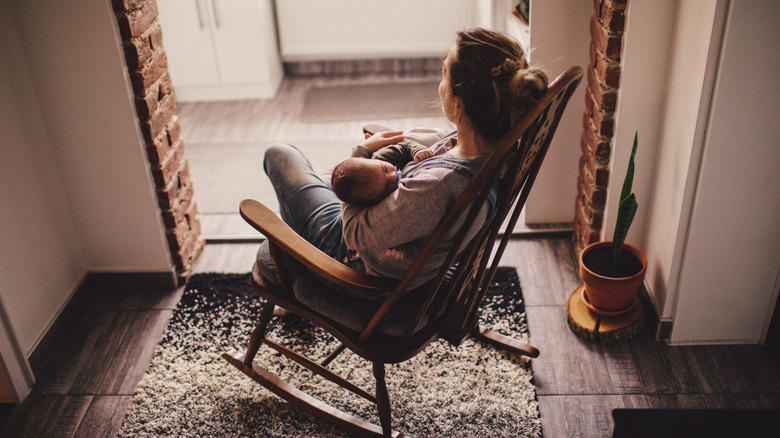If you can think back to your childhood, can you recall any bedtime routines that stood out for you? Did your mom read you a story from your favorite book so you could fall asleep faster? Or was it the night lamp your grandfather got you that made dozing off easier?
Turns out, there’s another baby-days trick that can help people fall asleep faster – rocking back and forth in a bed. Mimicking the motion of how your parents held you in their arms and gently swayed from left to right to lull you to sleep as a baby can apparently work on adults too. Now we know why hammocks are relaxing.
Research published in Current Biology has found links between how soon someone fell asleep and the gentle rocking motion of 10 centimeters back and forth every four seconds throughout the night, in adults. The 18 participants of the study were asked to sleep for one night in normal beds and the next on rocking ones. They were hooked to electroencephalogram (EEG) machines to record electrical activity in the brain. “We observed that our participants, although they slept well in both cases, fell asleep more quickly when they were rocked,” said Laurence Bayer, one of the lead researchers of the study (via Medical News Today).
The rocking motion also boosted sleep quality and sleep efficiency

It wasn’t just that the childhood trick made adults fall asleep easier. The research also found that they had better rest and longer sleep times. Researchers seem to think that the rocking motion creates some kind of brain-wave synchronization that leads to deeper and better quality sleep. In fact, according to one of the researchers, Michel Muhlethaler, the fact that brain-wave synchronization led to deeper sleep was a total surprise (via NPR). “It’s not just you go faster to sleep, but also while you sleep, your sleep is deeper. … We did not expect that. There was nothing in the literature to tell us that this would be the case,” shared Muhlethaler.
Furthermore, the study revealed that participants had fewer “micro-wakes” while being rocked in their beds, per Medical News Today.
You know how, sometimes, you roll around and wake up for some reason in the middle of the night and struggle to get back to sleep? Well turns out, sleeping on an adult-sized rocking bed might fix that too. And there’s more.
There could be a link between this childhood trick and your memory power too
Sleep quality isn’t the only thing that improved with the swaying motion of the bed. Apparently, so did the memory of the subjects tested. The adults who participated in the study were tasked with memorizing some word pairs before bedtime and asked to remember them in the morning. The results were significantly different when the two different sleeping situations were compared. The adults did three times better when they slept on the rocking beds, per CBC Radio.
The brain-wave oscillations that contributed toward better quality sleep also helped with memory consolidation, noted Science Daily. Does this mean you should be running out to get a hammock for a bed (or one of those fancy rocking beds for adults) if you struggle to fall asleep at night or have issues with memory?
Well, not quite. According to Dr. Aurore Perrault, a neuroscientist and another researcher on the team who did the study, you may want to wait until the research is done on people with sleeping difficulties and those who are aging before you consider a rocking bed (via CBC Radio). This one was done on healthy adults. Further research aside, though, this is definitely one of the more interesting tricks to try if you can’t fall asleep at night. At the very least, it could bring back fond memories from your childhood.